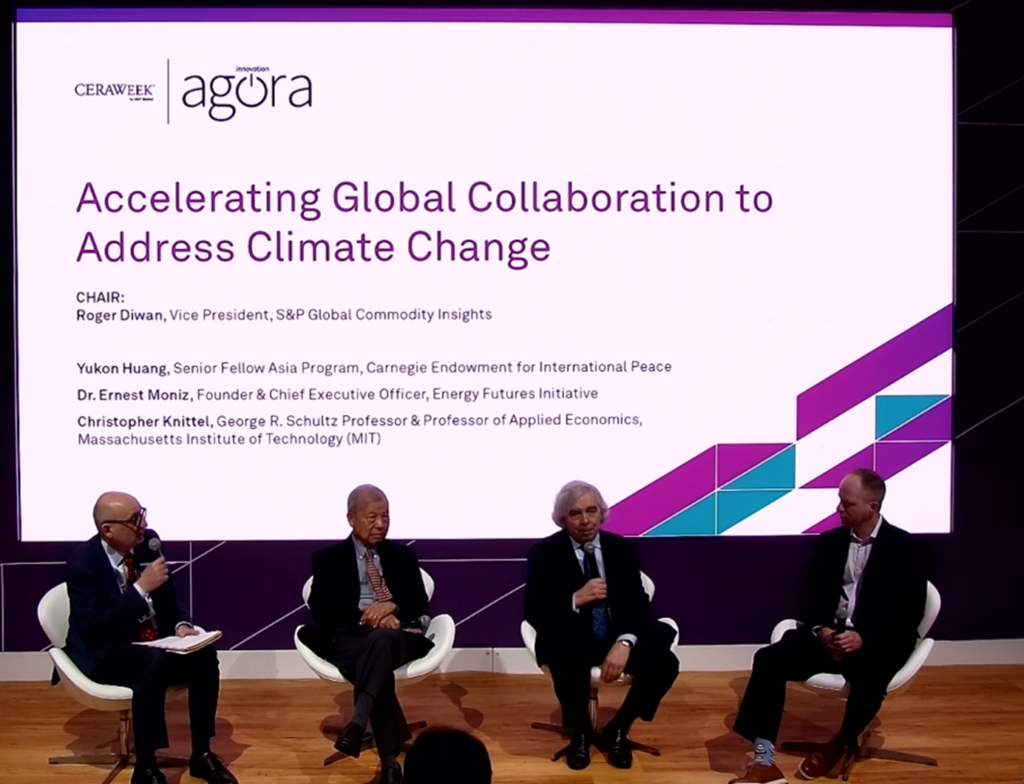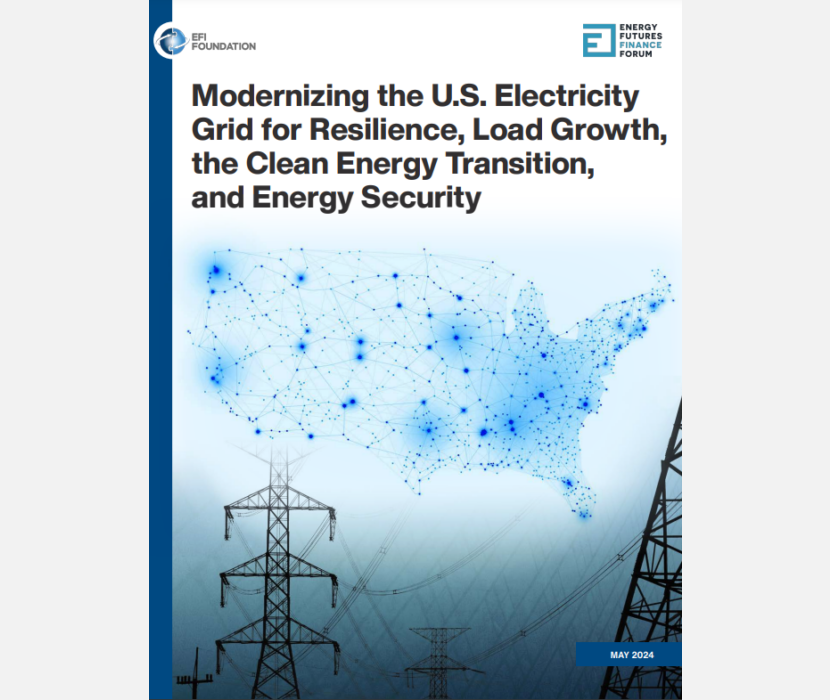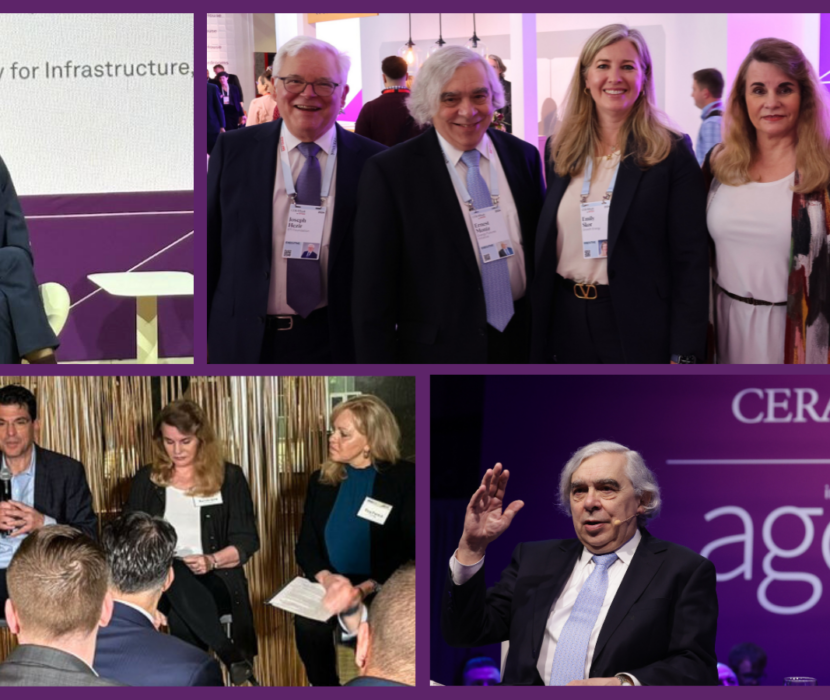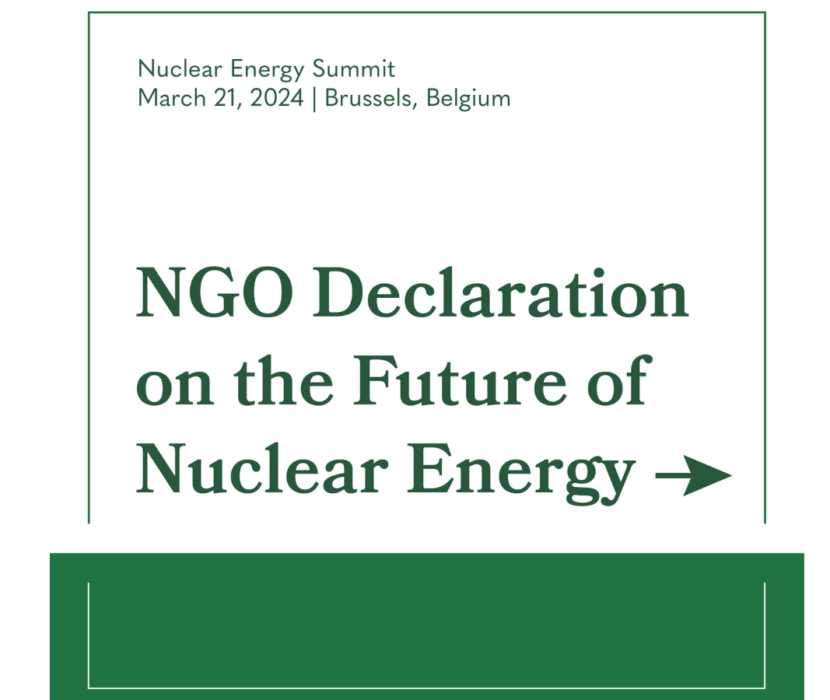
EFI Foundation CEO Ernest Moniz explained how advancements in international climate policy could take shape based on current global relationships during CERAWeek 2023 in March in Houston, Texas. Moniz was joined by two fellow panelists— Yukon Huang from the Carnegie Endowment for International Peace and Christopher Knittel from Massachusetts Institute of Technology—as well as by moderator Roger Diwan from S&P Global Commodity Insights during the session, titled “Accelerating Global Collaboration to Address Climate Change.”
Throughout the panel discussion, Moniz emphasized the importance of a resilient energy supply chain that can withstand not only political disputes, but also environmental disasters and other unexpected global catastrophes. Although the near-term costs of implementing preventative measures into the supply chain are high, Moniz stated that the cost of disruption is much higher.
“One disruption [in the supply chain] is extremely expensive,” Moniz said. “That’s where hygiene and resilience come in.”
The relationship between the United States and China was a primary topic of conversation during this session. Although the two countries are not always on the same page, Moniz said that advancements in global climate policy are possible, especially as extreme weather will drive people around the world to demand change. Moderator Diwan asked the panelists about the potential to bypass China in the energy supply chain, and Moniz responded by saying that is not a realistic possibility.
“China is going to be integral to global commerce and global supply chains,” Moniz said. “Diversification and security of supply matters.”
Moniz noted that problems arise when one country is too dependent on another and pointed to Germany’s dependence on Russia for natural gas as a recent example of how geopolitical issues can cause supply chain disruptions. He emphasized that diverse supply chains will give the United States the flexibility to respond to future challenges.
Moniz, as well as the other panelists, stated that the U.S. Inflation Reduction Act (IRA) is an important step in forming U.S. climate policy, but it will take guidance to implement change. Passage of the IRA pushed Europe to look at its own legislation, and hopefully will help create a healthier set of global trade and supply chain relationships by spurring competition that can accelerate change.
“I would argue that [recent U.S. legislation] created a very strong foundation for moving ahead in the competition with China in addressing climate change,” Moniz said. “But frankly it’s going to come down to implementation.”
Moniz said the recent U.S. industrial policy legislation already faces challenges. For example, the Bipartisan Infrastructure Law and the IRA use completely different definitions of “clean hydrogen,” and those definitions also differ from others used in the energy sector. Without standard definitions in policy, governments will have a difficult time fast-tracking global collaboration.
Moniz, as well as other EFI Foundation team members, participated in other events throughout CERAWeek 2023. Read about other EFI Foundation involvement in CERAWeek:
CERAWeek 2023: Moniz says global energy transition requires improved supply chains.
Watch the video: Accelerating Global Collaboration to Address Climate Change.
-Callyn Bloch, Communications Fellow
(Share this post with others.)




